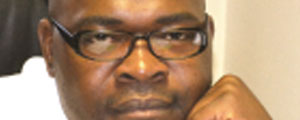
So 2014 is over.
Tapiwa Gomo
December is always the time to look back and reflect on what transpired the year almost behind us.
Reflecting on 2014 is like re-living a daylight nightmarish experience. It was a continuation of 2013 political pains.
The year 2014 was not different from the past 15 years. Politics has been the most thriving industry for over a decade and a half. One wonders how such an impoverished nation gets the energy to sustain what seems to be a thriving political industry.
In other countries, politicians derive their relevance from how effective their policies are in addressing social and economic problems. They win people’s hearts by what they stand for and what they do.
But in Zimbabwe, our politics largely draws from petty party differences, personal interests and personality clashes. A political narrative that comes out of that is barren of meaningful goals and objectives, but barrages of personal attacks and character assassination.
The impact of that on the majority of our people is simple: We hate those who are hated by those we sympathise with to the extent that we block our minds to reason, if such exists in our context. Our political choices have been heavily influenced by emotions and not logic.
- Chamisa under fire over US$120K donation
- Mavhunga puts DeMbare into Chibuku quarterfinals
- Pension funds bet on Cabora Bassa oilfields
- Councils defy govt fire tender directive
Keep Reading
As the year 2014 would bear testimony, emotionalism in politics has become highly reproductive with more parties splitting and forming; and more intra-party factions becoming more visible, divisive and decisive.
Perhaps one of the few differences in 2014 with previous years was that politics was more confined to internal party structures which saw politicians in government neglecting their duties as they jostled to maintain their political foothold.
The MDC-T takes the title on that front especially when it comes to splitting and forming new parties and re-uniting. In 2014, they delivered a new baby called the Renewal Team which is currently frolicking with the idea of a reunion with its sibling, one led by Welshman Ncube.
In the Morgan Tsvangirai tent, Job Sikhala has finally found political space, while Nelson Chamisa was reduced to an ordinary member of the party he helped form, just for daring to dream big. So Tendai Biti is back with Ncube, while Sikhala back with Tsvangirai. Isn’t that weird?
The government of national unity might have marked the peak for the MDCs and what remains is a lot of recycled hot air.
The grand coalition concept remains a dream and historically it has not gone beyond creating a loud voice that has attracted international attention than threaten those it wished to address. They have only succeeded as pressure groups and not as political organisations.
The Zanu PF congress was the main act which saw titanic changes and record-breaking outcomes.
For the first time in our recent history, political noise was dominated by women and for the first time since the Beijing conference women were the biggest losers with none in the presidium.
The Zanu PF pre-congress campaign trail took a new twist where opponents were recorded in their private spaces. Charity begins at home and respect for women should also surely start with women.
Still for the first time in our recent history, three most powerful men in the country became “victims” of assassination threats allegedly by a club belonging to a woman.
This is the same woman who had just accepted her fate after being “baby-dumped” by the party to which has been loyal since her teenage age.
I guess the million dollar question is: What does the future hold for Zimbabwe?
I doubt there will much to expect from MDCs until 2018 apart from divorces and reunions. The Zanu PF succession battle remains inconclusive and more drama is likely to unfold.
The system has created more enemies over the years both internally and externally, but healing its own internal rifts would be a priority if they are to survive to 2018 elections.
The Mujuru faction’s silence does not offer anyone comfort. In fact, it is too loud and confusing. One who speaks is easier to deal with, but who is silent is complicated to understand.
While their post-purge intentions remain unknown, they have the capacity to regroup and mobilise.
If the current scenario persists to next year, it means bad news for Zimbabwe.
The economy will continue to be neglected. More companies will close down and more jobs will be lost. Those economic blueprints will gather dust on the shelves.
More people will continue to demand answers from their leadership which in the current context is also fighting to secure a solid political ground.
Yes, we are in a country where, despite all the State machinery at their disposal, no leader feels safe.
And securing their safety and security will be their priority than fixing national problems.
Tapiwa Gomo is a development consultant based in Pretoria, South Africa.











